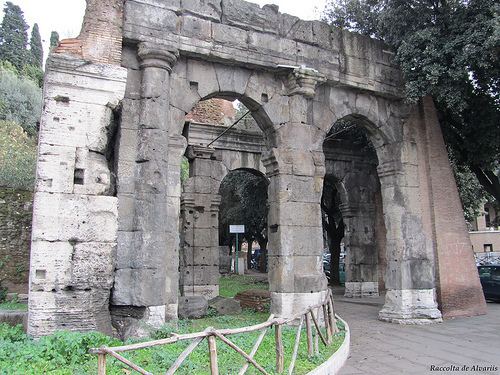Chapters
Goddess Carmenta, also called Carmentis, Themis, or Nicostrate, in Roman mythology described as one of the stones, nymphs of springs endowed with the gift of prophecy. She was also referred to as the goddess of fertility. She is most often depicted as a young girl wearing a wreath of broad beans. The character of Carmenta is associated with mythical events that took place before the founding of Rome. Myths attribute to her the role of the inventor of the Latin alphabet.
Origin
Carmenta was of Greek origin, coming from Arcadia in the Peloponnese. Before its arrival in Italy, it was originally named Nicostrate (Greek for “army of victory”). She was considered the daughter of the god Ladon, who was the personification of the Arcadian river Ladon. She was the mother of Evander, a hero whose father, according to various versions, was the god Hermes or the king of Arcadia, Pallas. The name Ewandra meant “good man”, “strong man” from Greek was Euandros.
Reaching Italy
Myths give various reasons why Carmenta and Evander had to leave Arcadia. The reason was the murder of his father by Evander or political disputes. In small ships they sailed west and reached the lands on the lower Tiber. These events probably took place 50-60 years before the Trojan War. The area they reached was the Aborigines country, located in Latium. The name of this Aborigines people is most likely a word of Latin origin, associated with the words ab origine(“from the beginning”, “from the source”). The king of this mythical land was then the god Faun. He welcomed them hospitably and gave them part of his possessions. At his mother’s persuasion, Evander and his crew chose a place on the left bank of the Tiber. It was located near a hill called Pallantion. The name came from the mother city in Arcadia of the same name. Later, the Romans called this hill Palatine. The village was destined to outshine other cities and be exalted above all of them. It was an announcement of Rome’s future power.
Soothsayer
In Italy, Nicostrate received a new name, Carmenta. This was due to honoring her power of prophecy and predicting the future in songs. The name Carmenta comes from the Latin word carmen, meaning a song as well as a magical spell. Her new name translated into Greek was Thespiodos (“Prophetic Singer”). This is related to one of her previous Greek name Themis. Carmenta became the main of kamen. In Roman mythology, Kamenas (from Latin Camenae) were considered spring nymphs who had the gift of predicting the future. The second known stone was Egeria. She was considered an advisor and wife of the second king of Rome, Numa Pompilius. The Kamenas were identified with Greek muses and had their own sacred grove in Porta Capena.
Impact on Italian culture and further history
The Roman writer Gaius Julius Hygin, the creator of the “Fabulae” myths, quoted a legend according to which Carmenta replaced fifteen letters of the Greek alphabet and renamed them into the Latin alphabet. Coming to Italy with their son, they brought the Greek alphabet to Latium. Evander also introduced new laws, the cult of Greek gods and knowledge of writing and music to these areas. He also established a festival called Lupercalia known to later Romans. Carmenta played an important role in Italy. She predicted the special role of Aeneas and his arrival in Italy. In Virgil’s “The Aeneid”, Aeneas is a guest in the kingdom of Evander. While giving advice to her son, she also predicted the arrival of Heracles (called Hercules by the Romans), who arrived in this area, returning with Geryon’s captured herd. (10th Labor of Heracles). The famous hero, returning to his homeland, stopped in Italy on his way back. Finding himself at the foot of the Palatine Hill, he killed the giant Cacus – the son of the god Vulcan, who terrorized the local area and stole his cattle. After dealing with the robber, Heracles stayed with Evander and his mother. In gratitude for his deed, an altar was built for him. The altar became the earliest center of the cult of Hercules and was called Ara Maxima, it stood at the Forum Boarium in Rome. Legend says that Carmenta refused to participate in the sacrifices during the Ara Maxima. From then on, Roman women did not take part in these celebrations.
Carmentalia
The Romans made annual sacrifices to Evander and Carmenta. Sacrifices to Evander were made at the Aventine, near the Trigemina gate. Gifts for Carmenta were placed on the altar at the foot of the Capitol at the Carmental Gate, where a temple that no longer exists was also built. The goddess also had her own festival, Carmentalia, celebrated from January 11-15. The sacrifice was made by a priest called Flamen Carmentalis. In her temple, it was forbidden to wear animal skin in any form. Bloodless sacrifices were offered to the goddess. Under the name of Prorsa or Prostuersa, she patronized the obstetrician, and women prayed for the health of their children and for safe delivery. Mainly women participated in the celebration.







